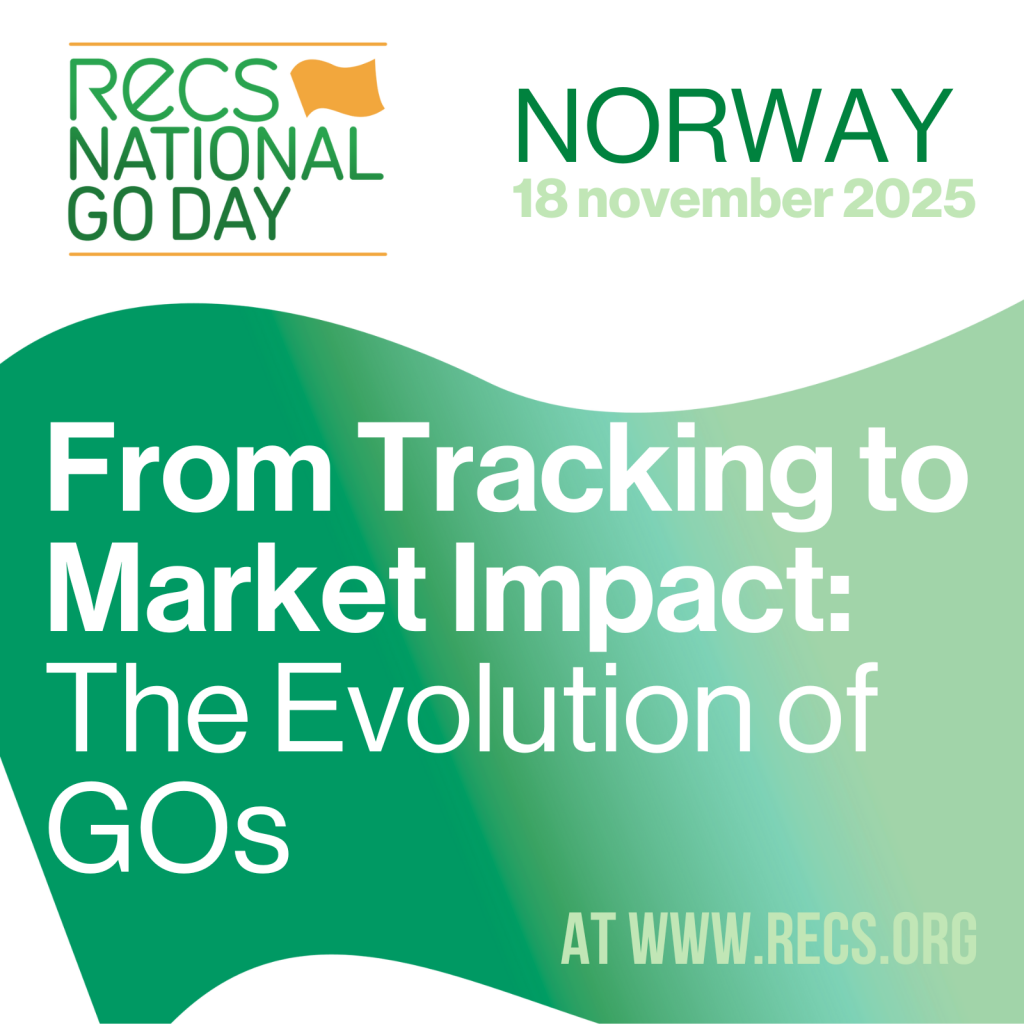Here are five ways Guarantees of Origin (GOs) have evolved into essential tools for credible climate action, corporate sustainability, and a unified European renewable energy market.
Today and for over 20 years, Guarantees of Origin (GOs) are crucial to building transparent, credible renewable energy markets in Europe. What started as a tracking tool has become a key driver of policy, corporate climate action, and cross-border cooperation.
At RECS, we work with members and partners to ensure GOs remain trustworthy, harmonised, and fit for the future of Europe’s energy transition. Here are five key ways GOs are reshaping Europe’s energy landscape, and why RECS is committed to strengthening their role in a credible, integrated energy future.
-
A Common language for renewable energy
First legally recognised by the EU Renewable Energy Directive (2001/77/EC), EU legislators designed GOs to offer consumers proof that their electricity came from renewable sources. Today, they’re used across nearly all European countries, with over 1,000 TWh of GO certificates issued annually through the Association of Issuing Bodies (AIB). Their value? GOs provide a standardised, transparent system across 30+ countries, allowing consumers and governments to track renewable electricity reliably and support climate goals.
-
They’ve become essential tools for corporate sustainability and Scope 2 reporting
Multinational companies with ambitious climate targets can use GOs to substantiate their renewable electricity claims. For example, the GHG Protocol Scope 2 Guidance allows companies to use Energy Attribute Certificates like GOs to make market-based environmental accounting claims. This recognition means that GOs are a strategic corporate procurement tool, with many corporations now actively sourcing GOs to back their 100% renewable energy goals.
-
They support market demand and offer important price signals
GO markets respond well to supply and demand, and certificate pricing is increasingly transparent. The market has matured and offers many procurement paths, including PPAs, national auctions, exchanges and bilateral agreements. The market reveals, and prices, demand for GOs from different countries, as well as demand for particular attributes like the age of the production device, the type of generation, and any added impact factors. This demand pricing signals to investors what type of renewables to build where, allows sellers to fine-tune their offerings, and lets buyers source exactly the GOs they want. All of this can help in pushing the market toward greater environmental impact.
-
They’re forcing national markets to adapt, especially in Norway
Norway, one of Europe’s largest producers of renewable electricity (primarily hydroelectric), has long been a major exporter of GOs. Now, despite some ongoing resistance, domestic Norwegian demand for GOs is starting to rise. Norway has adopted the Renewable Energy Directive 2, locking it into the GO system. The RECS National GO Day – Norway in November 2025 will offer market stakeholders a valuable opportunity to engage in dialogue, aligning national perspectives with pan-European frameworks and fostering efficient and effective use of GOs across Europe.
-
Enabling policy innovation and a unified European energy system
GOs support policy tools like renewable tariffs and disclosure regulations, while fostering cross-border cooperation and market integration through systems like the European Energy Certificate System (EECS). RECS collaborates internationally to keep tracking systems robust and future-ready.
Conclusion: from certification to systematic impact
Guarantees of Origin have come a long way from their early regulatory roots, having grown into powerful market instruments that build trust, enable choice, and drive progress in Europe’s energy transition. Today, they are no longer just certificates; they are market-shaping mechanisms that influence how energy is produced, purchased, and perceived across Europe.
As demand for credible, traceable energy continues to rise, the role of GOs will only expand, especially in countries like Norway, where national identity, market dynamics, and European leadership all intersect. RECS continues to support this evolution, driving dialogue, transparency, and market development across the continent.
RECS is proud to strengthen GO systems, promote best practices, and foster dialogue among all stakeholders, ensuring tracking is transparent, credible, and ready for the future.

